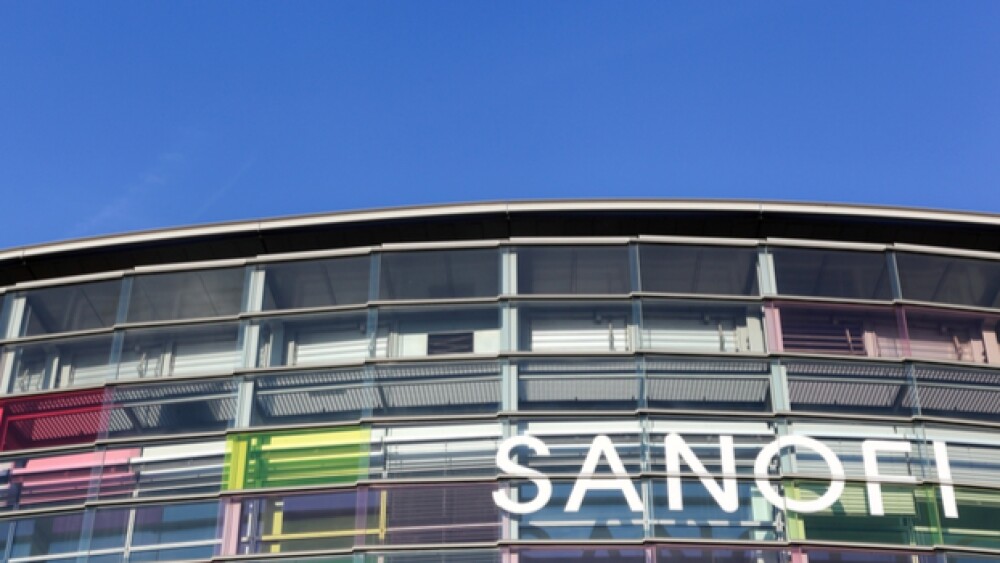The company’s consumer health unit is worth about $30 billion.
ricochet64 / Shutterstock
Paris-based Sanofi is reportedly considering either a joint venture or a sale of its consumer healthcare division. The company expects to announce a strategic plan in December.
The company’s consumer health unit is worth about $30 billion and one of the company’s options is an initial public offering (IPO). Paul Hudson, Sanofi’s chief executive officer, who took over the reins of the company on September 1, is expected to meet with investors in Cambridge, Massachusetts on December 10.
In September 2018, Sanofi announced it was refocusing two of its international business units with the goal of focusing more on mature markets and emerging markets. It planned to form a new Primary Care global business unit that would combine the product portfolios from its existing Diabetes and Cardiovascular (DCV) unit with Established Products. The new Primary Care unit was to focus on mature markets. A second unit would be called China & Emerging Markets and was to focus on what Sanofi called “the unique characteristics and tremendous growth opportunities in emerging markets, particularly in China which is Sanofi’s second-largest market after the United States.”
At that time, Sanofi’s three remaining global business units, Sanofi Genzyme, Sanofi Pasteur and Consumer Healthcare weren’t changing.
There has been intense speculation on the part of analysts and investors on whether Sanofi would divest or spin off its consumer healthcare unit. The unit’s revenue grew by 3% at constant exchange rates in 2018 to $5.21 billion. The rationale is that the company, whose innovation engine has been strongly reliant on its relationship with Regeneron Pharmaceuticals, would be able to invest the proceeds into more internal research.
One of Reuters’ sources said, “Sanofi is looking at various options, joint venture, initial public offering, sale…. They are talking to investment banks about options but have not taken a decision.”
Sanofi’s Hudson indicated last month that the company planned to evaluate every division’s performance and decide where to focus its resources. “Prioritization will become increasingly important going forward,” Hudson told reporters. “The reality in business is that some things are more important than others and we have to understand where we must win.”
In 2017, Sanofi completed a swap announced in June 2016, with Germany’s Boehringer Ingelheim. Sanofi exchanged its Merial animal drugs business with Boehringer’s over-the-counter (OTC) drugs business—basically, Sanofi picked up Boehringer’s consumer health business. Boehringer paid Sanofi €4.7 billion in cash. The deal increased Sanofi’s consumer healthcare market share to about 4.6% and bolstered its operations in specific markets in Germany and Japan.
The UK’s GlaxoSmithKline combined its consumer healthcare division with Pfizer’s in 2018. The joint venture was then spun off and listed separately. The combined global sales were about $12.7 billion in 2017. The joint venture has a global market share of 3.5%. Johnson & Johnson, Bayer and Sanofi, according to Reuters, are close competitors in the consumer healthcare market.
At its third-quarter financial report on October 31, Sanofi reported total net sales of €9.499 billion for the quarter, with Consumer Healthcare reporting €1.136 billion, up 0.4%. Total Pharmaceuticals reported €6.434 billion, Sanofi Pasteur (Vaccines) reported €1.929 billion. Total Pharmaceuticals was up 1.5%, whereas Vaccines was down 9.8%, with total net sales down 1.1%.
At the time, Hudson stated, “Since joining Sanofi only two months ago, I am increasingly excited about the strength of our businesses, our ability to develop transformative medicines and the diverse talent of our teams across the organization. Building on this foundation, Sanofi delivered a resilient underlying performance in the third quarter with strong sales in Specialty Care, largely driven by the continued outstanding performance of Dupixent. I am encouraged by the organization’s early achievements in our efficiency initiatives, which will allow us to further drive innovation in our business.”





